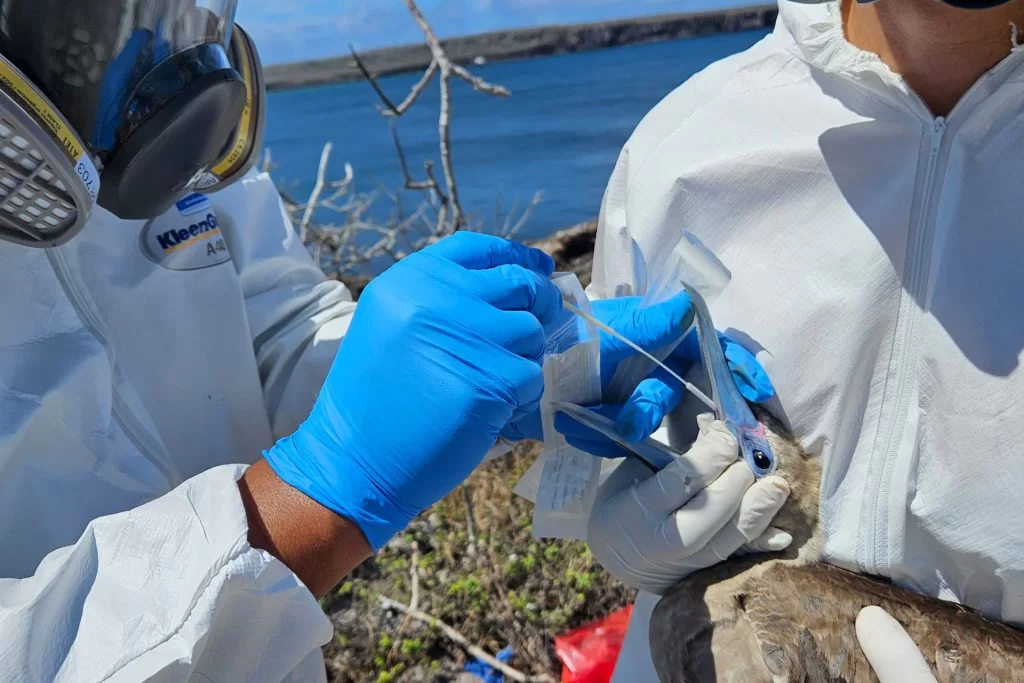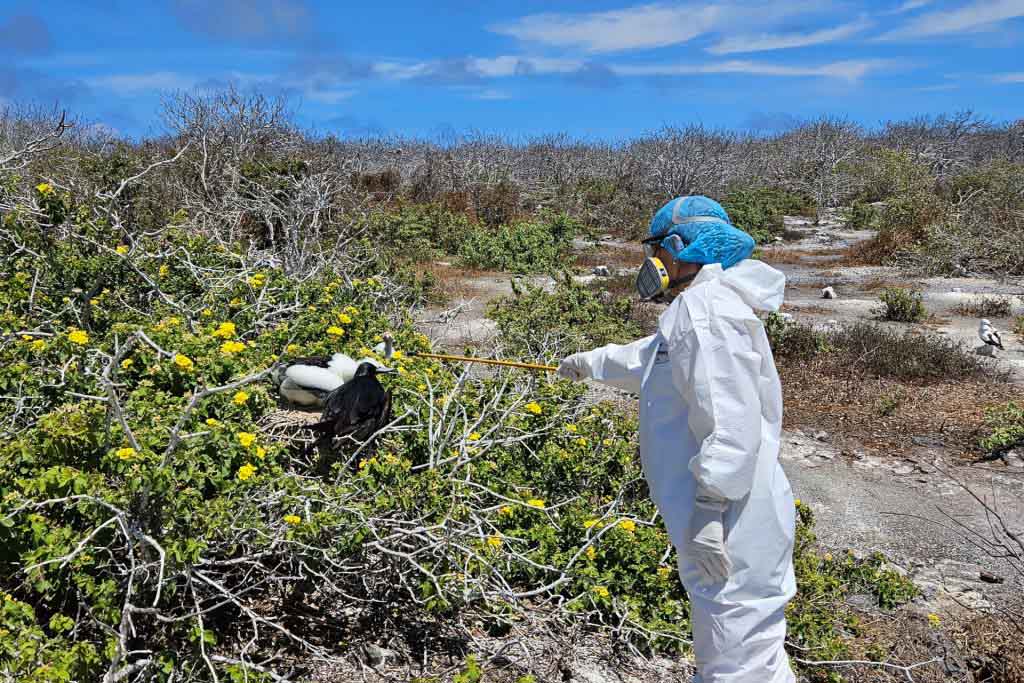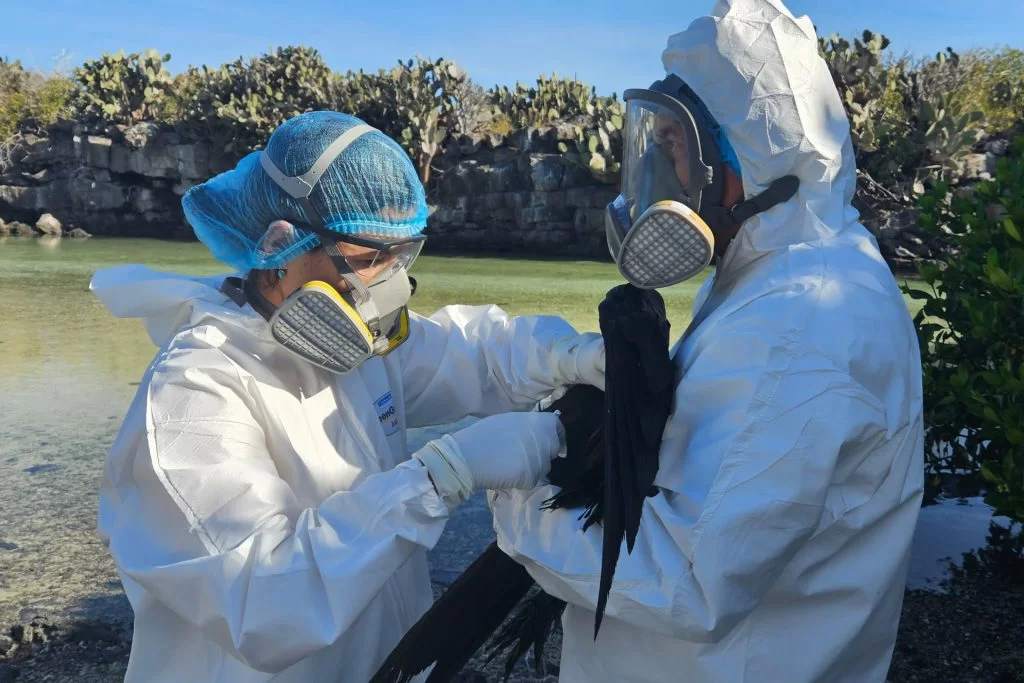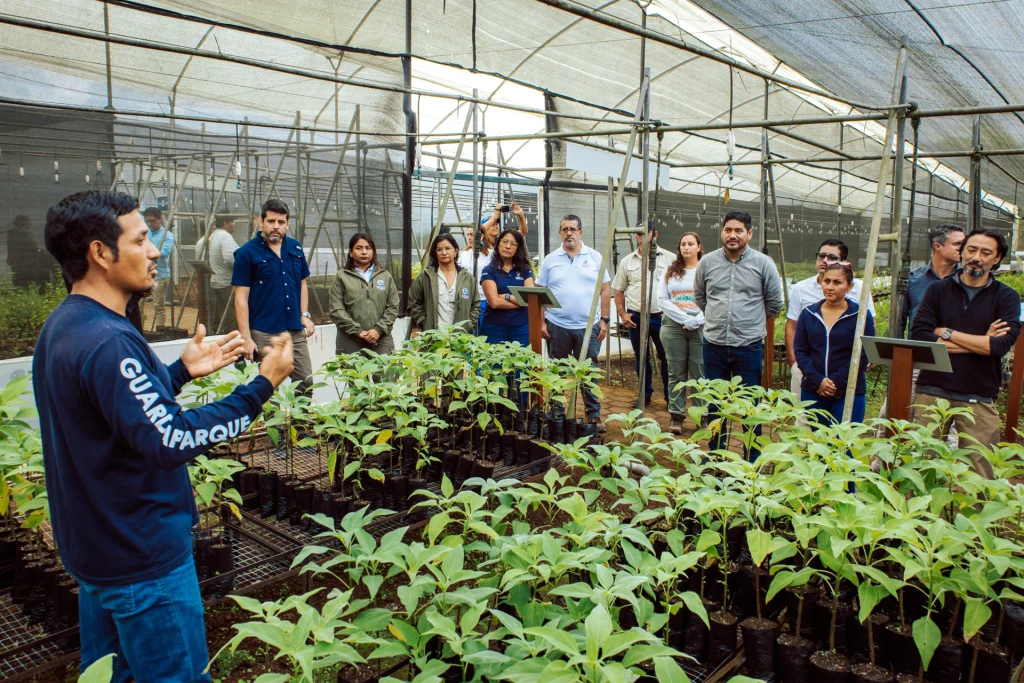Galapagos National Park Directorate took immediate action in response to the alarming discovery that marine birds were infected with avian influenza H5N1 on the Galapagos Islands. They investigated the cause of the disease and protected the unique biodiversity of the region. Three bird specimens tested positive for H5N1 avian flu, prompting immediate measures.
Immediate actions taken
The Galapagos National Park Directorate responded quickly to the discovery and identified the cause. The National Institute of Public Health Research, in Guayaquil, was contacted to validate samples collected from sickly bird.
Biosecurity Measures are Implemented
Galapagos National Park Directorate and the Agency for the Control and Regulation of Biosecurity and Quarantine for Galapagos now have strict biosecurity protocols. Visitors sites that had afflicted bird species, like Genovesa Island or Punta Pitt on San Cristobal Island have been closed. Tour operators were also urged to disinfect outdoor common areas, tender boats, and footwear for tourists who enter and leave visitor sites.

Continuous Monitoring
Park rangers, biosecurity agents and other experts are monitoring closely the nesting and habitats of endemic bird species such as Galapagos cormorants and Galapagos Penguins. Tour operators and naturalist guides have been instructed to increase their wildlife observation and report any abnormal behavior via a newly established emergency number.
Public Advisory
Galapagos National Park Directorate issued an urgent warning to the Galapagos Community to avoid handling any sick or dead birds. A specialized team was formed to collect any dead birds and dispose of them according to strict protocol in order prevent the virus spreading.
The Galapagos Conservancy General Director, scientist Washington Tapia is deeply concerned by the arrival in Galapagos of this virus and reaffirms the Conservancy’s commitment to provide support for the implementation measures that minimize the impact of the virus on this unique eco-system. Tapia said, “We’re on constant alert about this issue and have complete confidence in the Galapagos National Park Directorate as well as the Galapagos Biosecurity Agency in their ability to deal with this situation quickly and effectively.”

consistently and under strict biosecurity measures. © Galápagos National Park

